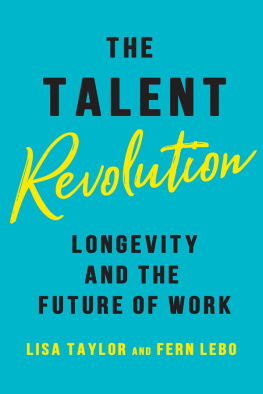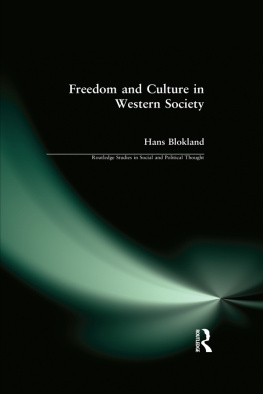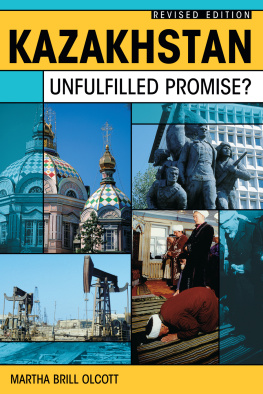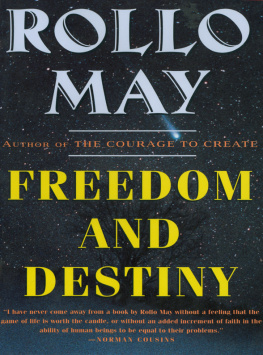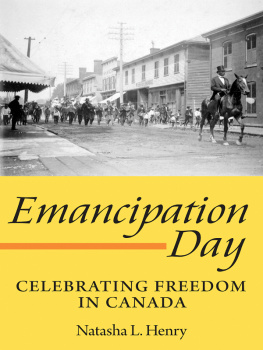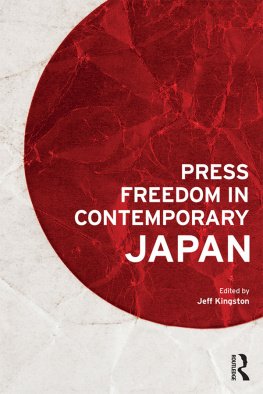Lisa Taylor - The Unfulfilled Promise of Press Freedom in Canada
Here you can read online Lisa Taylor - The Unfulfilled Promise of Press Freedom in Canada full text of the book (entire story) in english for free. Download pdf and epub, get meaning, cover and reviews about this ebook. year: 2017, publisher: University of Toronto Press, genre: Politics. Description of the work, (preface) as well as reviews are available. Best literature library LitArk.com created for fans of good reading and offers a wide selection of genres:
Romance novel
Science fiction
Adventure
Detective
Science
History
Home and family
Prose
Art
Politics
Computer
Non-fiction
Religion
Business
Children
Humor
Choose a favorite category and find really read worthwhile books. Enjoy immersion in the world of imagination, feel the emotions of the characters or learn something new for yourself, make an fascinating discovery.
- Book:The Unfulfilled Promise of Press Freedom in Canada
- Author:
- Publisher:University of Toronto Press
- Genre:
- Year:2017
- Rating:4 / 5
- Favourites:Add to favourites
- Your mark:
- 80
- 1
- 2
- 3
- 4
- 5
The Unfulfilled Promise of Press Freedom in Canada: summary, description and annotation
We offer to read an annotation, description, summary or preface (depends on what the author of the book "The Unfulfilled Promise of Press Freedom in Canada" wrote himself). If you haven't found the necessary information about the book — write in the comments, we will try to find it.
The Unfulfilled Promise of Press Freedom in Canada offers a vast array of viewpoints that critically analyze the application and interpretation of press freedom under the Charter of Rights.
Lisa Taylor: author's other books
Who wrote The Unfulfilled Promise of Press Freedom in Canada? Find out the surname, the name of the author of the book and a list of all author's works by series.
The Unfulfilled Promise of Press Freedom in Canada — read online for free the complete book (whole text) full work
Below is the text of the book, divided by pages. System saving the place of the last page read, allows you to conveniently read the book "The Unfulfilled Promise of Press Freedom in Canada" online for free, without having to search again every time where you left off. Put a bookmark, and you can go to the page where you finished reading at any time.
Font size:
Interval:
Bookmark:
Canadian news reports are riddled with accounts of Access to Information requests denied and government reports released with large swathes of content redacted.
The Unfulfilled Promise of Press Freedom in Canada offers a vast array of viewpoints that critically analyse the application and interpretation of press freedom under the Charter of Rights. This collection, assiduously put together by editors Lisa Taylor and Cara-Marie OHagan, showcases the insights of leading authorities in law, journalism, and academia as well as broadcasters and public servants. The contributors explore the ways in which press freedom has been constrained by outside forces, such as governmental interference, threats of libel suits, and financial constraints. These intersectional and multifaceted lines of inquiry provide the reader with a 360-degree assessment of press freedom in Canada while discouraging complacency among Canadian citizens. After all, an informed citizenry is a free citizenry.
LISA TAYLOR , a former lawyer, is a faculty member in the School of Journalism at Ryerson University. She spent more than a decade as a CBC Radio & Television journalist where her work was recognized by the Gemini Awards, the Atlantic Journalism Awards, and the Bnai Brith Media Human Rights Awards.
CARA-MARIE OHAGAN is the director of policy for the office of the Ontario Minister of Finance. She is formerly the director of the Ryerson Law Research Centre.
Press freedom is one aspect of the broader debate about the nature and scope of our right to free expression. Given the ambit and potential power of expression, it is a debate of deeply held views; it is also a debate that is challenging and leaves many feeling vulnerable and deeply uncomfortable. Free speech proponents are often, wrongly, accused of espousing views they themselves dont hold, because believing in free speech sometimes requires its champions to support expression they may find troubling. For that reason, this collection is dedicated to anyone who has ever stood up for another persons right to expressive freedom, despite the content of the expression.
LISA TAYLOR
TONY BURMAN
LEIGH FELESKY
NORMAND LANDRY
TIM CURRIE
ANNE-MARIE GINGRAS
DANIEL HENRY
RYDER GILLILAND
LISA TAYLOR
ROBERT KOOPMANS
FRED VALLANCE-JONES
SUZANNE CRAIG
GAVIN ADAMSON
BRUCE GILLESPIE
JAMIE CAMERON
JAMES ALLAN
IVOR SHAPIRO
Thanks, first and foremost, to the authors whose work appears in this collection, both for their time and patience as well as for their intellectual contributions to press freedom discourse. Thanks also to Aleksandra Acimovic, Kira Domratchev, Kalia Garcia-Rojas, and Aseel Kafil for pitching in on both the editorial and administrative fronts, as well to Beth McAuley and Melissa MacAulay of The Editing Company for their invaluable editing assistance and insightful suggestions; your work has added greatly to this collection.
I truly enjoyed collaborating with my co-editor, Cara-Marie OHagan, the former director of the Ryerson Law Research Centre. The idea for this collection was born of a conference co-sponsored by Ryersons law and journalism research centres; thanks to the wise counsel of Siobhan McMenemy (formerly of the University of Toronto Press, now a senior editor with Wilfrid Laurier University Press), Cara and I left that conference with a clear vision of what a contemporary press freedom collection should encompass.
Thanks to my partner, Peter Kenyon, and my son, Leo Kenyon, who missed me (I hope) on the weekends I devoted to this collection. Finally, I owe a debt of gratitude to my colleagues, Ivor Shapiro, the former chair of Ryersons School of Journalism, and April Lindgren, director of the Ryerson Journalism Research Centre, for supporting and championing this collection on many fronts.
LISA TAYLOR
Judicial interpretation of the Canadian Charter of Rights and Freedoms transformed many aspects of Canadian media practice in the years immediately following the Charters enactment. Those of us who care deeply about free and democratic media and who came of age during that time followed developments in Charter jurisprudence in much the same way our peers might have followed a hit TV drama. At that time, judicial decision-making under the Charter appeared to offer the promise of a new chapter for Canada, one that affirmed and recognized the value of press freedom.
Back then, if you had told me that I would live to see an era in which popular opinion often opposed a free press, I simply would not have believed it. Today, however, as a professor in a school of journalism, I regularly encounter young adults who, despite their apparent desire to practise journalism, are nonetheless troubled by journalists efforts to shine a bright light on aspects of society others would prefer to keep cloaked in darkness. Recently, during a class discussion about impediments to media coverage of the Canadian judicial system, one upper-year journalism student questioned the publics right to know. A criminal trial is about one person, she said, so why should we have the right to pry into the details of that persons life?
Dear student, Im so glad you asked. The courts are a vital component of a democratic society and, as such, they must be open to public scrutiny; in that regard, yes, it may be that privacy is sacrificed at the altar of the public interest. Where there is no publicity there is no justice, wrote Jeremy Bentham, the eighteenth-century philosopher. Publicity is the very soul of justice.
This answer may not be self-evident to the journalism students I teach today. In their lifetime, there has always been a Charter, and its very existence, while not a panacea, has served to blunt some of the more egregious ways in which those in positions of power may try to prevent us from receiving information that will enhance our participation in civil society. But the threats to journalists raison dtre are real, our victories have often been partial, and those gains we have made under the Charter often appear to be at risk.
A free press is a democratic cornerstone and, for that reason, measures which prohibit the media from publishing information deemed of interest obviously restrict that freedom. This collection aims to contextualize the first decades of press freedom under the Charter, reflect on the developments in Canadian press freedom law since 1982, critically interrogate the current state of affairs, and advance possible remedies to the ongoing challenges related to access to information and freedom of expression faced by both traditional and emerging media.
While press freedom faces opposition from a range of interests, such challenges are not always external; in fact, as the chapters in part one of this collection explore, the most insidious threats to press freedom sometimes come from within the industry itself. In his chapter, The Real Danger to Press Freedom, Tony Burman explores the decisions made within news organizations to suppress, rather than disseminate, information. In this exploration, Burman carefully elucidates both the noble and not-so-noble reasons why journalists create and succumb to internal pressure to withhold information, and argues that news organizations must be far more transparent about such choices. Among the more ignoble reasons Burman addresses in the chapter is the temptation to bow to financial interests, an issue further dissected in Exploring How Emerging Digital Business Models and Journalistic Innovation May Influence Freedom of the Press. In that chapter, Leigh Felesky explains that digital journalisms evolving business models may make online news particularly vulnerable to self-censorship in the name of financial interests.
Font size:
Interval:
Bookmark:
Similar books «The Unfulfilled Promise of Press Freedom in Canada»
Look at similar books to The Unfulfilled Promise of Press Freedom in Canada. We have selected literature similar in name and meaning in the hope of providing readers with more options to find new, interesting, not yet read works.
Discussion, reviews of the book The Unfulfilled Promise of Press Freedom in Canada and just readers' own opinions. Leave your comments, write what you think about the work, its meaning or the main characters. Specify what exactly you liked and what you didn't like, and why you think so.


